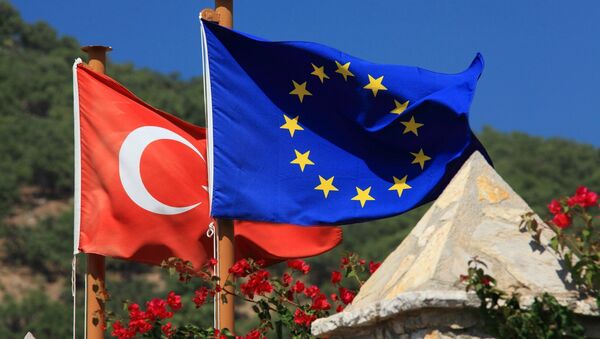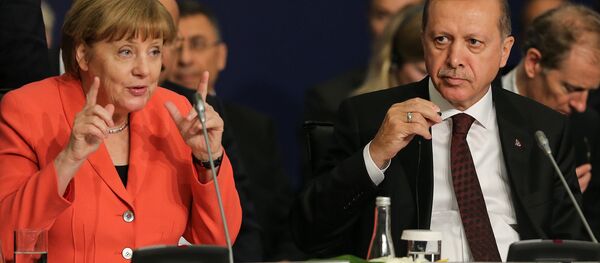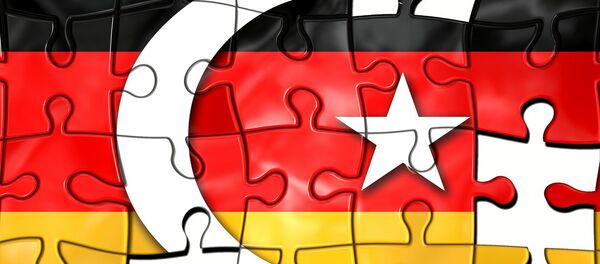The politician also stressed that in this way the EU is trying to force Turkey to abandon the accession talks.
"Germany seeks to become a force that plays a key role within the EU, especially after Brexit. It seeks to increase its influence not only in economic, but also in political and military spheres," the expert told Sputnik Turkey.
President Recep Tayyip Erdogan has accused Germany and the Netherlands of "Nazism" and "fascism," with his statements causing shock among European politicians. In response, EU foreign policy chief Federica Mogherini and EU Commissioner for European Neighbourhood Policy Johannes Hahn urged Ankara to "refrain from excessive statements and actions that risk further exacerbating the situation."
"Given Germany's serious political, economic and historical influence on Turkey since the times of the Ottoman Empire, as well as the fact that the EU has leading positions in the structure of Turkish exports and imports, it is understandable that Germany seeks to further strengthen its influence on Turkey and therefore intervenes in Turkey's domestic affairs," the expert stated.
"The shortest and most effective way to do it is to finally abandon the idea of Turkey's membership in the EU, which Germany has never really accepted. The EU […] now seeks to force Turkey to break off the ongoing EU accession negotiations and withdraw from this process," he added.
In November, the European Parliament voted in favor of freezing EU accession talks with Turkey over concerns about Ankara's post-coup crackdown. While the vote was non-binding and mostly symbolic, the move was widely criticized in Ankara.
At the same time, Doster believes that anti-Turkish sentiments will affect the upcoming referendum on constitutional reform in Turkey and result in an increasing number of Turkish voters who will support the constitutional amendments."
"If anti-Turkish and anti-Muslim rhetoric has its impact on the elections in Europe, then anti-European, or rather anti-EU sentiment in Turkey will work as well," he concluded.
The referendum on constitutional reform in Turkey is set to take place on April 16. If approved, the reform will convey enormous powers to Turkish President Recep Tayyip Erdogan and, as some experts fear, turn the country into a "one-man-dictatorship."





